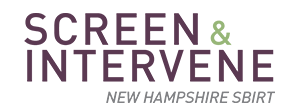What leads to adverse consequences such as lower grades in school and difficulty getting and keeping a job? What has health impacts such as raising the likelihood of violent victimization, sexual assault, and accidents? Alcohol and other drug use.
SBIRT is a strategy in the healthcare sector for reinforcing healthy behaviors, identifying problematic drug and alcohol use early, reducing substance misuse, and referring to treatment those who need it. This evidence based practice is a process with three main elements – Screening, Brief Intervention, and Referral to Treatment in medical settings.
When you have a doctor’s visit there are certain questions they ask you every time, and others that they ask you annually. Those are screening questions for possible health risks. SBIRT adds an effective screen for alcohol and drug use. If you screen negative then your healthcare provider can reinforce your healthy choices. This is a particularly powerful prevention strategy with youth. Brief intervention is simply the conversation that follows the screening. It is a different kind of a conversation and practitioners need to be supported to learn the information and skills necessary for an effective motivating dialogue regarding the results of the screen. If the screening and the brief intervention indicate to the healthcare provider that the patient requires and desires specialty substance use disorder care; then a referral to treatment is made just as it is made for other specialty care – preferably with someone in the healthcare setting scheduling and reminding about the appointment.
The process then repeats itself annually, if not more often. SBIRT opens a line of communication and support for alcohol and other drug issues that patients have never had with their healthcare provider before. Simply asking the questions reduces stigma and lays a foundation for accessing help and support in the future.
